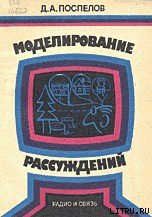Психология оценки и принятия решений - Плаус Скотт (читать книги онлайн бесплатно полностью без .txt) 📗
Processes, 39,133—144. Arkes, H. R., Harkness, A. R. (1983). Estimates of contingency between
two dichotomous variables. Journal of Experimental Psychology: General
112,117-135. Arkes, H. R., Wortmann, R. L., Saville, P. D., Harkness, A. R. (1981).
Hindsight bias among physicians weighing the likelihood of diagnoses.
Journal of Applied Psychology, 66,252—254.
Aronson, E. (1969). The theory of cognitive dissonance: A current perspective. In L. Berkowitz (Ed.), Advances in experimental social psychology
(Vol. 4, pp. 1—34). New York: Academic Press. Aronson, E. (1972). The social animalSan Francisco: W. H. Freeman and
Company. Aronson, E., Mills, J. (1959). The effect of severity of initiation on liking
for a group. Journal of Abnormal and Social Psychology, 59,177—181. Asch, S. E. (1946). Forming impressions of personality. Journal of Abnormal
and Social Psychology, 41,258—290. Asch, S. E. (1951). Effects of group pressure upon the modification and
distortion of judgment. In H. Guetzkow (Ed.), Groups, leadership and
men.Pittsburgh: Carnegie Press.
Asch, S. E. (1955, November). Opinions and social pressure. Scientific American,pp. 31—35. Asch, S. E. (1956). Studies of independence and conformity: A minority of
one against a unanimous majority. Psychological Monographs, 70(9,Whole
No. 416). Ausubel, N. (Ed.). (1948). A treasury of Jewish folklore: Stories, traditions,
legends, humor, wisdom and folk songs of the Jewish people.New York:
Crown Publishers. Ayton, P., Hunt, A. J., Wright, G. (1989). Psychological conceptions of
randomness. Journal of Behavioral Decision Making, 2,221—238. Bakan, P. (1960). Response tendencies in attempts to generate random binary series. American Journal of Psychology, 73,127—131. Bandura, A. (1982). Self-efficacy: Mechanism in human agency. American
Psychologist, 37,122-147.
Bandura, A. (1986). Social foundations of thought and action: A social cognitive theory.Englewood Cliffs, NJ: Prentice-Hall. Barclay, S., Beach, L. R. (1972). Combinatorial properties of personal
probabilities. Organizational Behavior and Human Performance, 8,179—183. Bar-Hillel, M. (1973). On the subjective probability of compound events.
Organizational Behavior and Human Performance, 9,396—406.
325
Bar-Hillel, M. (1980). The base-rate faiiacy in probability judgments. Ada
Psychologica, 44,211-233. Bar-Hillel, M. (1990). Back to base rates. In R. M. Hogarth (Ed.), Insights
in decision making: A tribute to Hillel J. Einhorn.Chicago: University of
Chicago Press. Batson, C. D. (1975). Attribution as a mediator of bias in helping. Journal of
Personality and Social Psychology, 32,455—466. Batson, С D., Marz, B. (1979). Dispositional bias in trained therapists'
diagnoses: Does it exist? Journal of Applied Social Psychology, 9,476—489. Baxter, T. L., Goldberg, L. R. (1987). Perceived behavioral consistency
underlying trait attributions to oneself and another: An extension of the
actor-observer effect. Personality and Social Psychology Bulletin, 13, 4 Ъ 1— Щ 1.Bazerman, M. H., Giuliano, Т., Appelman, A. (1984). Escalation of commitment in individual and group decision making. Organizational Behavior and Human Performance, 33,141—152. Bedau, H. A., Radelet, M. L. (1987). Miscarriages of justice in potentially
capital cases. Stanford Law Review, 40,21—179. Bell, D. E. (1982). Regret in decision making under uncertainty. Operations
Research, 30,961-981. Bell, D. E. (1985). Disappointment in decision making under uncertainty.
Operations Research, 33,1—27. Bern, D. J. (1972). Self-perception theory. In L. Berkowitz (Ed.), Advances
in experimental social psychology(Vol. 6). New York: Academic Press. Ben Zur, H., Breznitz, S. J. (1981). The effects of time pressure on risky
choice behavior. Ada Psychologica, 47,89—104. Bernoulli, D. (1738/1954). Exposition of a new theory on the measurement
of risk, translated by Louise Sommer. Econometrica, 22,22—36. Beyth-Marom, M. (1982). Perception of correlation reexamined. Memory
Cognition, 10,511-519.
Bierbrauer, G. (1973). Effect of set, perspective, and temporal factors in attribution.Unpublished doctoral dissertation, Stanford University. Bishop, G.F., Oldendick, R. W., Tuchfarber, A. J., Bennett, S. E. (1980).
Pseudo-opinions on public affairs. Public Opinion Quarterly, 44,198—209. Blascovich, J., Ginsburg, G. P., Howe, R. С (1975). Blackjack and the
risky shift, II: Monetary stakes. Journal of Experimental Social Psychology,
11,224-232. Block, J. R., Yuker, H. E. (1989). Can you believe your eyes?New York:
Gardner Press.
Blodgett, R. (1983, November). Against all odds. Games,pp. 14—18. Bond, С F., Jr., Titus, L. J. (1983). Social facilitation: A meta-analysis of
241 studies. Psychological Bulletin, 94,265—292. Borgida, E., Nisbett, R. E. (1977). The differential impact of abstract vs.
concrete information on decisions. Journal of Applied Social Psychology, 7,
258-271.
326
Borrelli, S., Lockerbie, В., Niemi, R. G. (1987). Why the Democrat-Republican partisanship gap varies from poll to poll. Public Opinion Quarterly, 51,115-119.
Bostic, R., Herrnstein, R. J., Luce, R. D. (1990). The effect on the preference-reversal phenomenon of using choice indifferences. Journal of Economic Behavior and Organization, 13,193—212.
Bourne, L. E., Jr., Guy, D. E. (1968). Learning conceptual rules: II. The role of positive and negative instances. Journal of Experimental Psychology, 77,488-494. Bransford, J. D., Franks, J. J. (1971). The abstraction of linguistic ideas.
Cognitive Psychology, 2,331—350.
Brickman, P., Coates, D., Janoff-Bulman, R. (1978). Lottery winners and accident victims: Is happiness relative? Journal of Personality and Social Psychology, 36,917-927. Brockner, J., Rubin, J. Z. (1985). Entrapment in escalating conflicts:
A social psychological analysis.New York: Springer-Verlag. Brockner, J., Rubin, J. Z., Lang, E. (1981). Face-saving and entrapment.
Journal of Experimental Social Psychology, 17,68—79. Brockner, J., Shaw, M. C, Rubin, J. Z. (1979). Factors affecting withdrawal from an escalating conflict: Quitting before it's too late. Journal of Experimental Social Psychology, 15,492—503. Brophy, J. E. (1983). Research on the self-fulfilling prophecy and teacher
expectations. Journal of Educational Psychology, 75,631—661. Brown, E., Deffenbacher, K., Sturgill, W. (1977). Memory for faces and the circumstances of encounter. Journal of Applied Psychology, 62,311—318. Bruner, J. S., Postman, L. J. (1949). On the perception of incongruity:
A paradigm. Journal of Personality, 18,206—223. Budiansky, S. (1988), July 11). The numbers racket: How polls and statistics
lie. U.S. News World Report,pp. 44—47.
Campbell, J. D., Tesser, A. (1983). Motivational interpretations of hindsight bias: An individual difference analysis. Journal of Personality, 51,605-620. Cantril, H. (1940). Experiments in the wording of questions. Public Opinion
Quarterly, 4,330-332. Carden, G. (1990, September 25). Strangers, but they share unbelievable
mirror-image lives. National Enquirer,p. 19.
Carroll, J. S. (1978). The effect of imagining an event on expectations for the event: An interpretation in terms of the availability heuristic. Journal of Experimental Social Psychology, 14,88—96.

![Озарение [Версия без таблиц] - Логвинов В. Н. (книги онлайн TXT) 📗](/uploads/posts/books/63698/63698.jpg)
![Озарение [Версия с таблицами] - Логвинов В. Н. (смотреть онлайн бесплатно книга TXT) 📗](/uploads/posts/books/63699/63699.jpg)

